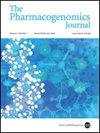青少年癌症幸存者中蒽环类药物诱发心功能障碍的风险:遗传易感基因位点的作用。
IF 2.9
3区 医学
Q2 GENETICS & HEREDITY
引用次数: 0
摘要
众所周知,儿童癌症幸存者对蒽环类药物诱发的心功能障碍具有遗传易感性,但这一点尚未在青少年和年轻成人(AYA)患者中得到充分证明。我们的目的是确定以前在儿童癌症患者中发现的与心功能障碍有关的变异是否同样影响到青少年癌症患者。我们在 253 名曾接受过蒽环类药物治疗的青少年患者中选取了 45 个变体进行分析。我们发现了四个与心功能障碍相关的变异:SLC10A2:rs7319981 (p = 0.017)、SLC22A17:rs4982753 (p = 0.019)、HAS3:rs2232228 (p = 0.023) 和 RARG:rs2229774 (p = 0.050)。HAS3:rs2232228和SLC10A2:rs7319981在我们的老年癌症幸存者人群中显示出显著影响,其方向与儿童癌症幸存者中报告的方向相反。我们进一步分析了这些宿主基因的遗传变异与青少年癌症幸存者心脏毒性的其他关联。然后在一组诱导多能干细胞衍生的心肌细胞中对宿主基因进行了评估,以评估多柔比星治疗时的表达水平变化。观察到 HAS3 和 SLC22A17 表达明显上调(p本文章由计算机程序翻译,如有差异,请以英文原文为准。


Risk of anthracycline-induced cardiac dysfunction in adolescent and young adult (AYA) cancer survivors: role of genetic susceptibility loci
There is a known genetic susceptibility to anthracycline-induced cardiac dysfunction in childhood cancer survivors, but this has not been adequately shown in adolescent and young adult (AYA) patients. Our aim was to determine if the previously identified variants associated with cardiac dysfunction in childhood cancer patients affect AYA cancer patients similarly. Forty-five variants were selected for analysis in 253 AYAs previously treated with anthracyclines. We identified four variants that were associated with cardiac dysfunction: SLC10A2:rs7319981 (p = 0.017), SLC22A17:rs4982753 (p = 0.019), HAS3:rs2232228 (p = 0.023), and RARG:rs2229774 (p = 0.050). HAS3:rs2232228 and SLC10A2:rs7319981 displayed significant effects in our AYA cancer survivor population that were in the opposite direction than that reported in childhood cancer survivors. Genetic variants in the host genes were further analyzed for additional associations with cardiotoxicity in AYA cancer survivors. The host genes were then evaluated in a panel of induced pluripotent stem cell-derived cardiomyocytes to assess changes in levels of expression when treated with doxorubicin. Significant upregulation of HAS3 and SLC22A17 expression was observed (p < 0.05), with non-significant anthracycline-responsivity observed for RARG. Our study demonstrates that there is a genetic influence on cardiac dysfunction in AYA cancer patients, but there may be a difference in the role of genetics between childhood and AYA cancer survivors.
求助全文
通过发布文献求助,成功后即可免费获取论文全文。
去求助
来源期刊

Pharmacogenomics Journal
医学-药学
CiteScore
7.20
自引率
0.00%
发文量
35
审稿时长
6-12 weeks
期刊介绍:
The Pharmacogenomics Journal is a print and electronic journal, which is dedicated to the rapid publication of original research on pharmacogenomics and its clinical applications.
Key areas of coverage include:
Personalized medicine
Effects of genetic variability on drug toxicity and efficacy
Identification and functional characterization of polymorphisms relevant to drug action
Pharmacodynamic and pharmacokinetic variations and drug efficacy
Integration of new developments in the genome project and proteomics into clinical medicine, pharmacology, and therapeutics
Clinical applications of genomic science
Identification of novel genomic targets for drug development
Potential benefits of pharmacogenomics.
 求助内容:
求助内容: 应助结果提醒方式:
应助结果提醒方式:


